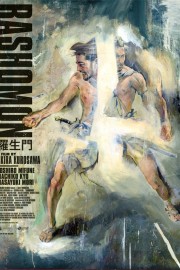Rashomon
I’m fairly certain I’ve mentioned it before, but it’s well worth repeating. If I were going to start a friend off on watching foreign films, especially classic foreign films, I would definitely start with the work of Akira Kurosawa. I probably wouldn’t start out with later, more cerebral works like “Dreams,” but the classics he made between 1950 and 1965 would certainly make a great first impression, especially when you consider how much of American cinema of the past 50 years was inspired by his work.
His first film during that 15-year stretch, “Rashomon,” remains one of the great landmarks of world cinema. Though it wasn’t the first film to deal with multiple perspectives on the same story, it is still one of the best. During its 88 minutes, we see the inspiration for “Courage Under Fire,” “Memento,” “Reservoir Dogs,” “The Usual Suspects,” and any film where the reliability of characters is called into question.
The film begins, fittingly, with the words, “I don’t understand,” spoken by someone who has just witnessed a trial involving the rape of a woman, and the murder of her husband. Three people have testified to being the killer. The most likely individual is Tajômaru, played by Kurosawa’s favorite actor, Toshirô Mifune, but even the wife testifies that she, in fact, killed her husband. Who is telling the truth? That is what the man, a woodcutter, and a priest cannot understand. How can three people be so convinced of their own guilt in the death of this man? Even the husband, speaking through a medium, tells his version of the story, but for obvious reasons, that seems like an unlikely truth as well. By the end, we understand why the woodcutter does not understand what he has witnessed, though even he seems unreliable by the end.
Kurosawa created a firestorm with “Rashomon,” which won the Oscar for Best Foreign Film. No one had seen anything like it, and it opened the door for Japanese cinema as a major market on the world stage. The title itself has entered the vernacular as a way of describing things we do not understand. I’ve already mentioned just some of the films “Rashomon” has inspired over the years, and as I’ve said in other reviews, Kurosawa inspired many more with films like “Seven Samurai,” “Yojimbo,” “Sanjuro,” and “The Hidden Fortress.” But “Rashomon” was the film that raised the curtain on Kurosawa’s great career, and it remains just as potent an example of storytelling, and the tricky nature of truth, as it was 62 years ago.










